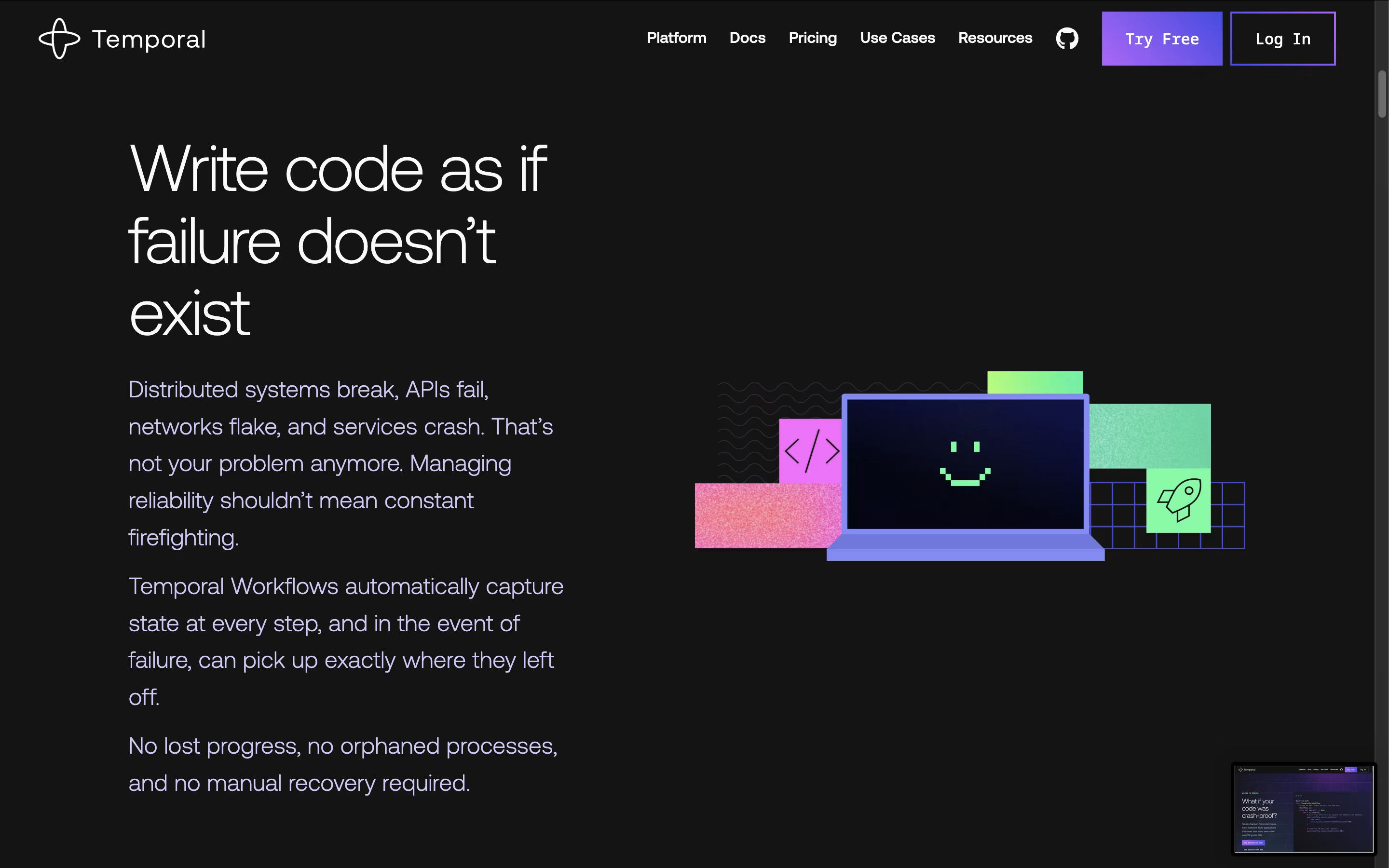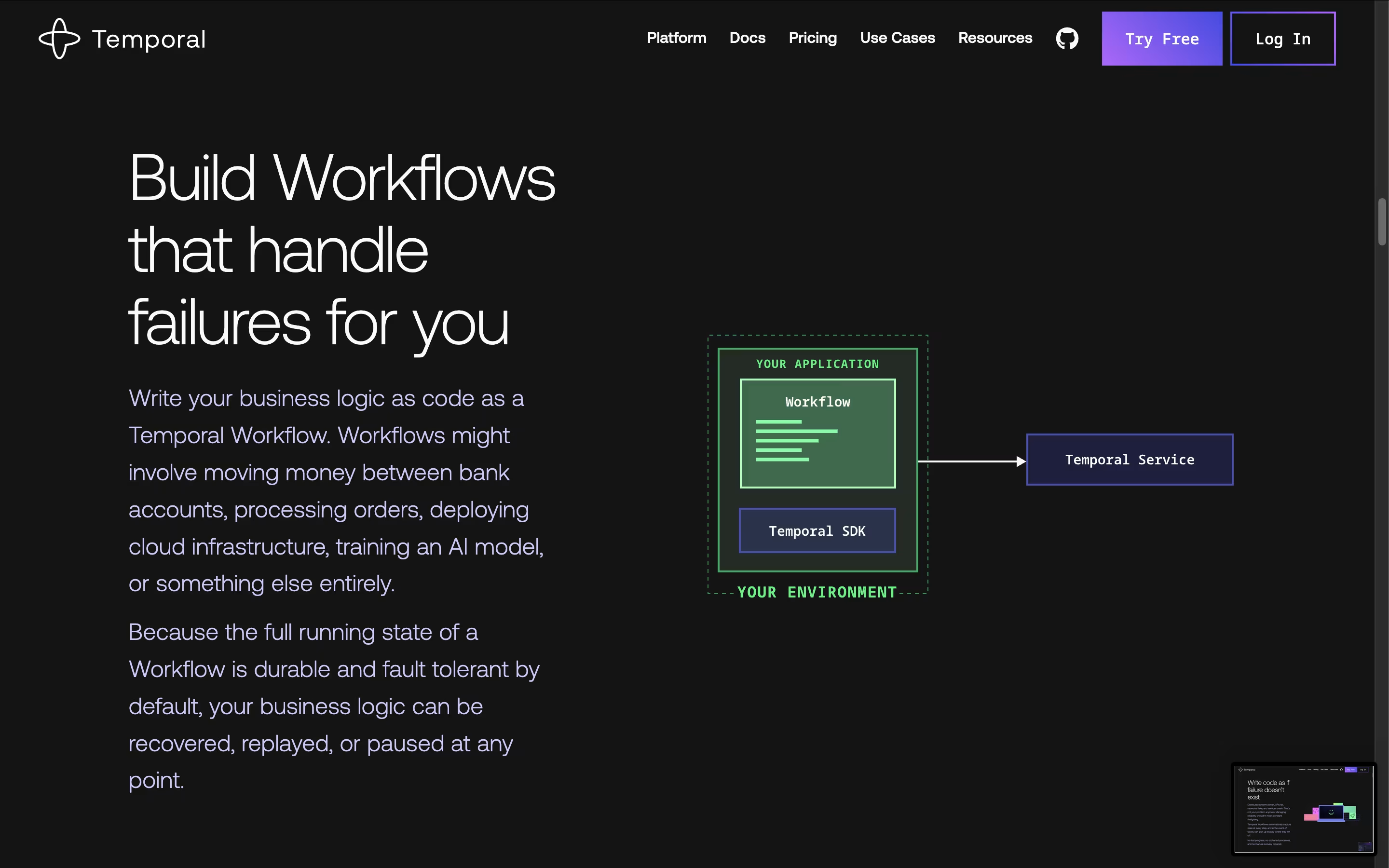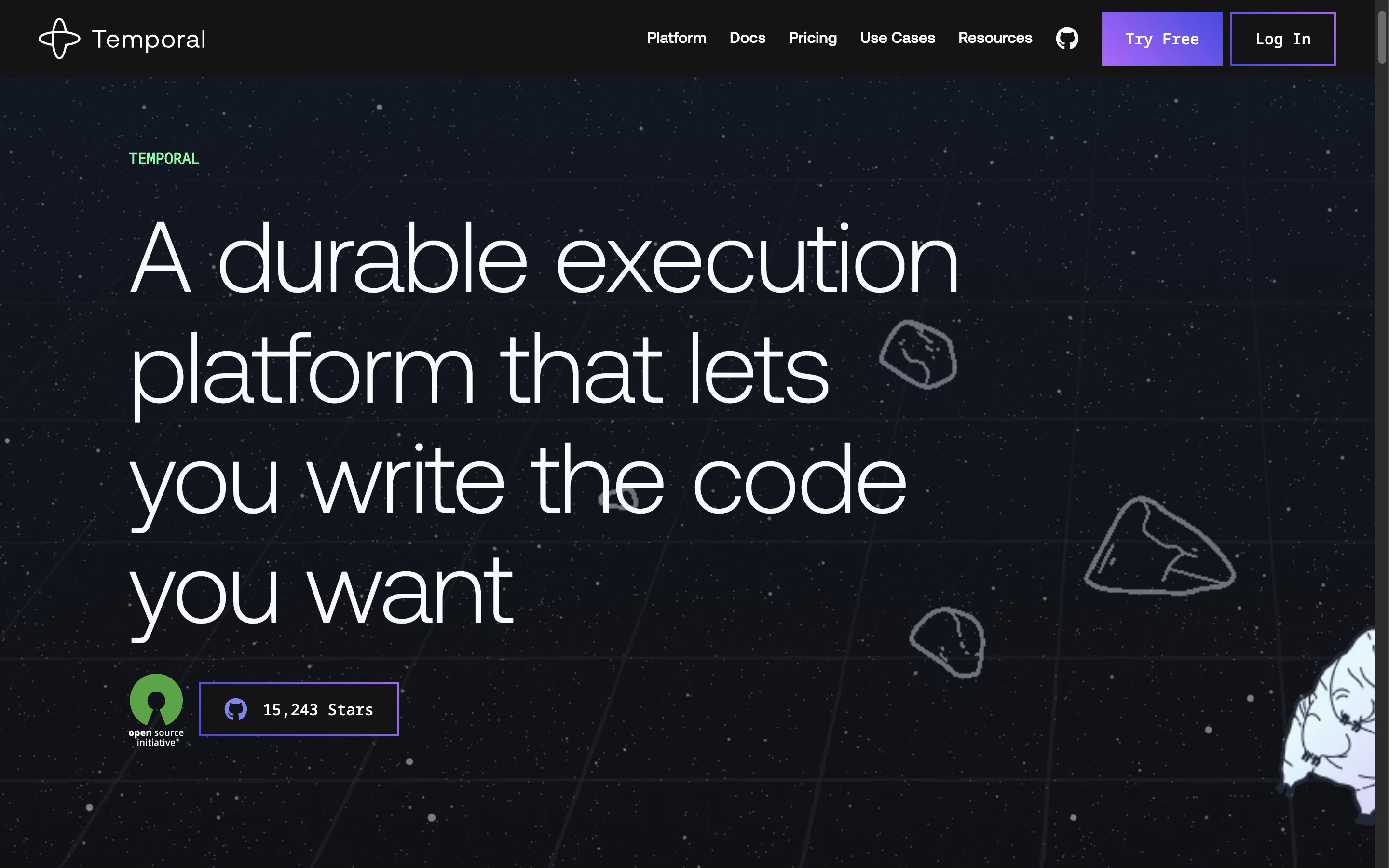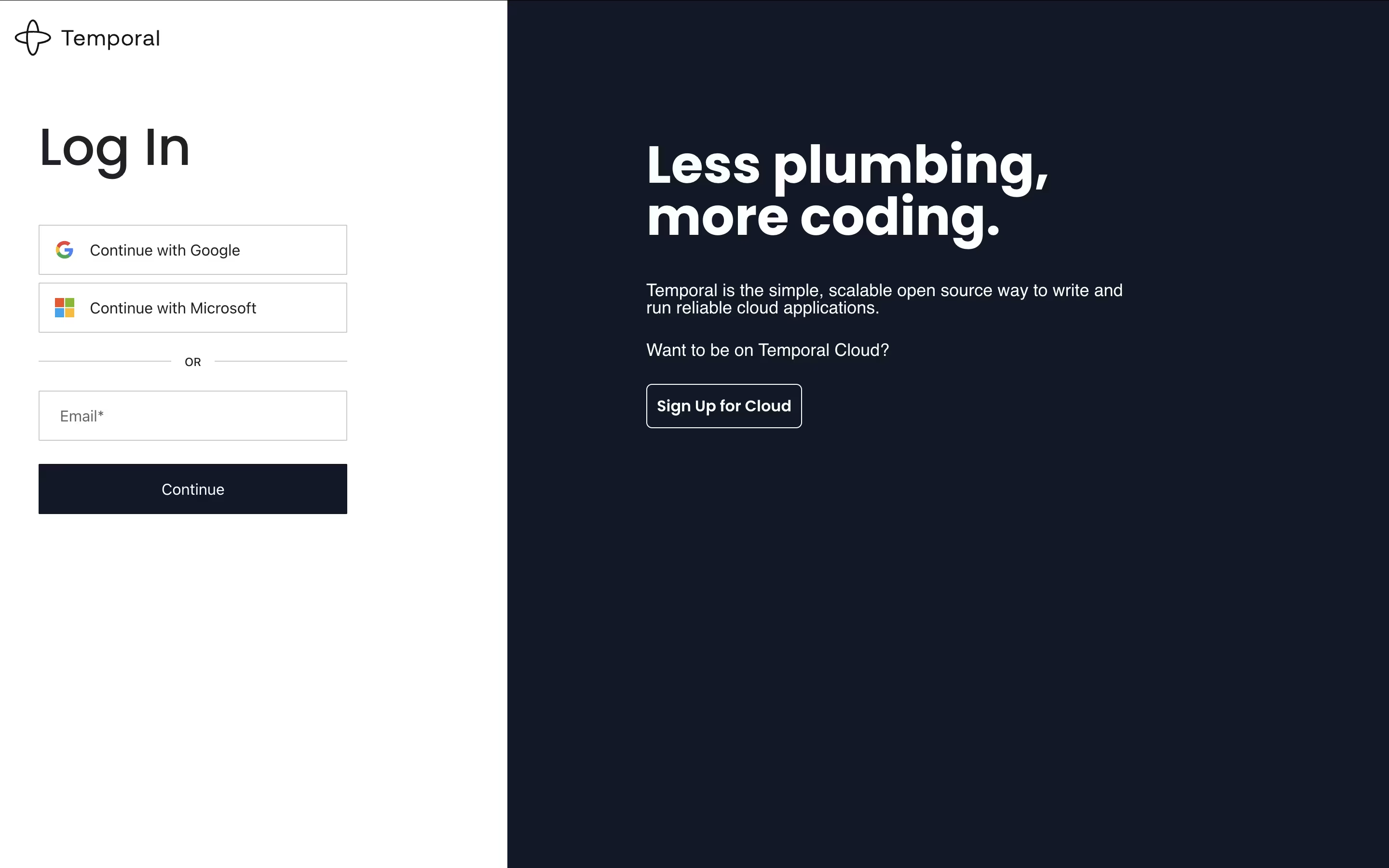
Temporal
Temporal is an open-source durable execution platform that helps developers build reliable, fault-tolerant applications with workflow automation.





What is Temporal
Temporal is a durable execution platform that guarantees your application code will run to completion, no matter what goes wrong. Think of it as a safety net for your software that automatically handles all the messy parts of distributed systems.
The platform consists of two main parts: an open-source server that manages workflow execution and SDKs for popular programming languages like Go, Java, Python, TypeScript, .NET, and PHP. Unlike traditional approaches where you write complex error-handling code, Temporal lets you write your business logic as simple workflows and activities.
Workflows define the overall process, while activities handle individual tasks like sending emails or processing payments. The system automatically persists your application's state at every step, so if something fails, execution picks up exactly where it left off. This approach eliminates the need for custom retry logic, state machines, and complex failure handling code.
How to Use Temporal
Getting started with Temporal is straightforward, and you can choose between self-hosting or using Temporal Cloud. For beginners, Temporal Cloud offers the easiest path with $1,000 in free credits to get started.
Getting Started Steps:
Install the Temporal CLI on your development machine
Choose your preferred programming language SDK (Go, Java, Python, TypeScript, .NET, or PHP)
Define your workflows as simple functions that describe your business process
Create activities for individual tasks like API calls or data processing
Set up a worker process to execute your workflows and activities
Use the Temporal client to start and manage workflow executions
The beauty of Temporal lies in its simplicity. You write normal code using familiar programming constructs, and Temporal handles all the complexity behind the scenes. Your workflows can run for minutes, hours, or even months while surviving server restarts and network outages. The web-based dashboard provides complete visibility into your running workflows, making debugging and monitoring effortless.
Features of Temporal
Open-source durable execution platform with MIT license
Multi-language SDKs (Go, Java, Python, TypeScript, .NET, PHP)
Automatic retries, timeouts, and failure handling
Visual workflow monitoring and debugging tools
Horizontal scaling for millions of concurrent workflows
Built-in timers, schedules, and cron functionality
Real-time workflow signals and queries
Cloud-hosted and self-hosted deployment options
Temporal Pricing
Open Source
Free
- Full Temporal platform functionality
- MIT licensed open-source
- Self-hosted deployment
- Community support
- All SDKs included
- Web UI and CLI tools
- Unlimited workflows and activities
Essentials
$100 /mo
- Fully managed Temporal Cloud
- Bundled Actions and Storage
- 5% of consumption pricing
- Basic support included
- SLA guarantees
- Enterprise security
- $1,000 free credits for new users
Business
$500 /mo
- Enhanced support and SLAs
- 10% of consumption pricing
- Priority technical support
- Advanced monitoring and analytics
- Team collaboration features
- Dedicated solutions architect
- Higher action and storage limits
Enterprise
Custom
- Custom annual pricing
- 24/7 dedicated support
- Advanced security and compliance
- SSO and SAML integration
- Custom SLAs and guarantees
- Professional services included
- Multi-region deployment
Mission Critical
Custom
- Highest tier support and SLAs
- 99.99% uptime guarantee
- Premium performance optimization
- Dedicated infrastructure
- Advanced disaster recovery
- Executive support access
- Custom enterprise features
Temporal Use Cases
Who Can Benefit from Temporal
Temporal Repository
View on Github| Stars | 16,642 |
| Forks | 1,183 |
| Repository Age | 6 years |
| Last Commit | 2 months ago |
FAQ's About Temporal
Share your experience with Temporal
See what users are saying about Temporal
0 Reviews
No reviews yet
Be the first to review Temporal
Embed Temporal badges
Show your community that Temporal is featured on Tool Questor. Add these beautiful badges to your website, documentation, or social profiles to boost credibility and drive more traffic.











